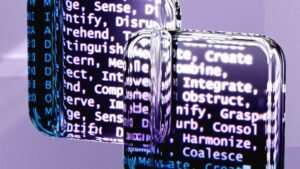Stephen Thaler, a computer scientist lost a bid at the SC, on Wednesday, to register patents for inventions created by his AI called DABUS.
The UK IPO or Intellectual Property Office refused to register the patents on the grounds that the inventions were devised by a machine rather than an individual or company as is the accepted norm.
Landmark British ruling regarding AI inventions and their patentability
Thaler then appealed to the Supreme Court where it was unanimously ruled that a patent must be by a “natural person” only.
The landmark ruling has led to the question of whether inventions made by artificial intelligence and advanced technology should be patentable.
In the written ruling, Judge David Kitchin clarified that the case did not address the broader issue of whether advancements resulting from machines operating autonomously and driven by artificial intelligence should be eligible for IP(Intellectual Property) protection.
The statement further highlighted that there are valid questions regarding how the patent system and intellectual property, in general, should manage such innovations. The government expressed its commitment to ongoing scrutiny of this legal domain.
It was noted that Thaler faced a parallel setback earlier in the year in the United States, where the Supreme Court chose not to consider his challenge to the U.S. Patent and Trademark Office’s decision not to grant them for inventions produced by his AI system.
It was further emphasized by Rajvinder Jagdev, an IP partner at Powell Gilbert that “The ruling does not prevent an individual from employing AI to conceive an invention. In such a situation, it remains feasible to seek a patent, as long as the person utilizing the AI is identified as the inventor.”
Should inventions by AI be patentable?
Since AI is still largely a foreign concept about which people are only beginning to familiarize themselves, it is still an area of concurrent discussion. The knowledge of the extent of AI’s abilities is still negligible and obscure, with developments being made every other day.

As of now, AI is still largely viewed as a tool and not an entity capable of exhibiting individual standalone behavior which is essentially why the question of bestowing the IP holding rights upon AI appears to be ludicrous to some.
There are, however, benefits to granting patent rights to AI, such as:
Development of AI:
Patenting rights give the inventor absolute control over their invention. With AI possessing far superior productive capabilities than humans, those looking to harness technology would have to race against AI to invent. This will propel investors to spend their money on developing AI.
More expenditure on Research and Development:
Companies would increase funding in research and development because of more AI-powered patents leading to exclusive rights over inventions which would then be monetized for gain.
On the other hand, there are certain concerns that AI-powered intellectual property holds, including
The obscurity surrounding AI:
AI works on mathematical algorithms and abstract concepts that with constant ongoing development become difficult to define. They might well curb innovation rather than develop it by making the patents too broad or narrow to define. With rapid technological development, the patent in point might become obsolete by the time it is granted.

Ethical concerns:
Broad protection for AI-related IP(Intellectual property) might lead to unethical practices and potential misuse again owing to the lack of clarity regarding AI and its abilities.
Some propose a middle ground, suggesting that IP offices should adopt more flexible approaches to assess AI-related inventions. This might involve establishing specialized patent examination procedures or guidelines tailored to the unique characteristics of AI.
Ultimately, the decision on whether AI inventions should be patentable involves a balance between ensuring innovation and that the system effectively serves its intended purpose without hindering progress or imposing undue restrictions. Ongoing discussions and potential policy adjustments will likely shape the landscape in the years to come.











Comments 3